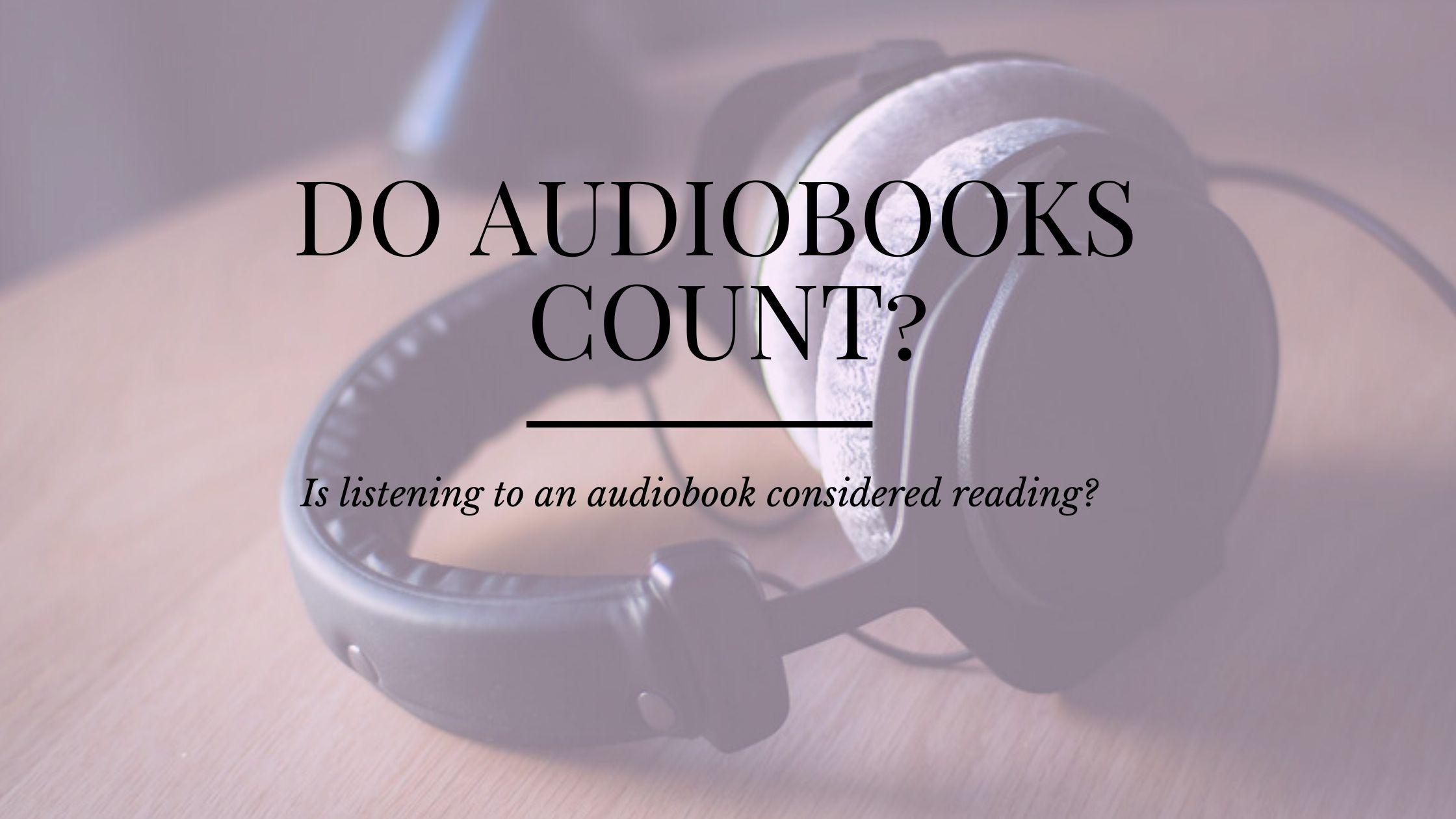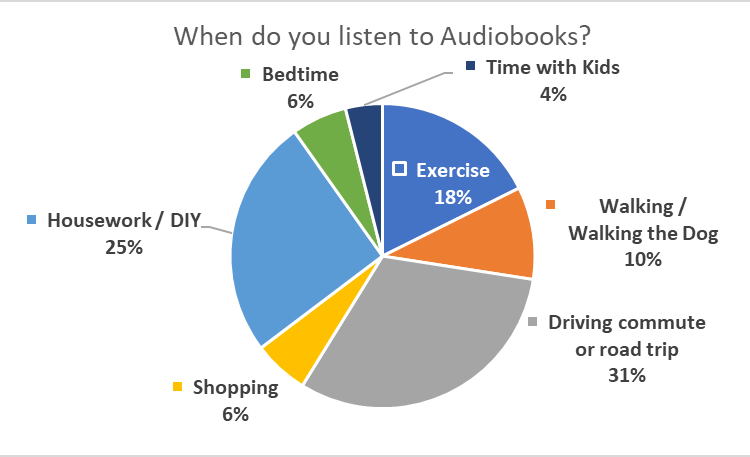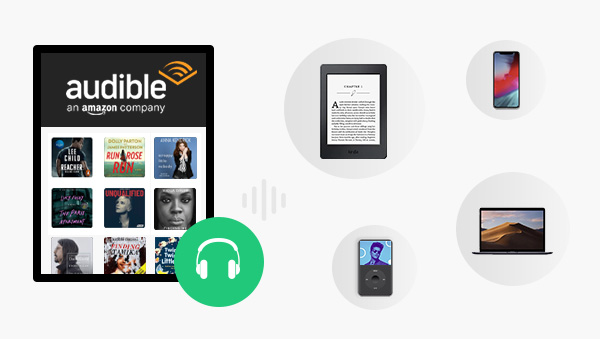Does Audiobook Count As Reading?
Do you ever find yourself wondering if listening to an audiobook counts as reading? It’s a question that has sparked much debate among booklovers and literary enthusiasts. Some argue that reading is a visual activity, and therefore, listening to an audiobook doesn’t fulfill the same cognitive processes as reading a physical book. On the other hand, proponents of audiobooks believe that the act of absorbing a story or information through listening is just as valid as reading. So, does audiobook count as reading? Let’s dive into this intriguing topic and explore the different perspectives.
When it comes to the age-old question of whether audiobooks qualify as reading, opinions are divided. Some purists argue that reading involves the physical act of decoding written words and mentally constructing the narrative in one’s mind. They believe that listening to an audiobook lacks the same level of engagement and imagination required when reading a traditional book. However, those in favor of counting audiobooks as reading argue that the fundamental purpose of reading is to comprehend and absorb the content, regardless of the medium through which it is consumed. They emphasize the importance of the storytelling experience and argue that audiobooks offer unique advantages, such as captivating narrations and the ability to multitask while listening.
In the end, whether or not you consider audiobooks as reading is a personal choice. It ultimately depends on how you define reading and the goals you have for your reading experience. Some may prefer the tactile experience of holding a physical book, while others may appreciate the convenience and accessibility of audiobooks. Whichever camp you belong to, what truly matters is the joy and knowledge you derive from the stories and information you encounter. So, grab a book or plug in your headphones, and embark on your reading journey, whether it’s through the pages of a book or the voices in your ears.

Does Audiobook Count as Reading?
In today’s fast-paced world, finding time to sit down and read a physical book can be a challenge. However, audiobooks have gained popularity as a convenient alternative. But does listening to an audiobook count as reading? This question has sparked debates among book enthusiasts and scholars alike. In this article, we will delve into the different perspectives surrounding this topic and explore the benefits and drawbacks of audiobooks.
The Argument for Audiobooks as Reading
Audiobook supporters argue that listening to a book engages the same cognitive processes as reading. When we listen to an audiobook, our brains still process the words, comprehend the story, and imagine the scenes. The experience of being immersed in a narrative remains intact, regardless of the medium. In fact, studies have shown that audiobooks activate similar areas of the brain as traditional reading, leading to enhanced comprehension and retention.
Furthermore, audiobooks offer accessibility to individuals with visual impairments or learning disabilities. They provide an inclusive platform for everyone to enjoy literature, regardless of physical limitations. Audiobooks also allow multitasking, enabling people to listen while driving, exercising, or doing household chores. This flexibility allows individuals to consume books they may not have otherwise had the time or opportunity to read.
The Benefits of Audiobooks
1. Enhanced Comprehension: Audiobooks engage our auditory senses, helping us understand complex concepts and storylines more effectively.
2. Improved Pronunciation and Vocabulary: Listening to professional narrators can expose us to new words and proper pronunciation, expanding our linguistic skills.
3. Multitasking Convenience: Audiobooks provide a hands-free reading experience, allowing us to engage with literature while completing other tasks.
4. Accessible to All: Audiobooks break barriers for individuals with visual impairments, learning disabilities, or physical limitations.
5. Improved Language Fluency: Listening to well-narrated audiobooks can enhance our understanding of intonation, rhythm, and expression in spoken language.
The Argument against Audiobooks as Reading
Critics argue that listening to an audiobook lacks the same level of engagement as physically reading a book. They believe that the act of turning pages, feeling the weight of the book, and visually tracking the words contributes to a more immersive experience. They claim that listening to an audiobook may lead to distractions or diminished focus, resulting in a less thorough understanding of the material. Additionally, they argue that audiobooks may hinder the development of critical reading skills, such as annotation and note-taking.
The Drawbacks of Audiobooks
1. Reduced Focus: Distractions in the environment or the absence of visual cues may lead to decreased concentration while listening to an audiobook.
2. Limited Annotation: Audiobooks make it difficult to highlight or annotate passages, which can hinder active reading and critical analysis.
3. Less Control over Pacing: Audiobooks follow a predetermined pace set by the narrator, which may not align with an individual’s reading preferences.
4. Visual Imagination Limitations: Without printed text, listeners rely solely on the narrator’s interpretation, potentially limiting personal imagination and creativity.
5. Limited Access to Visual Elements: Audiobooks may lack visual elements like illustrations, maps, or graphs, which can impact the overall reading experience for certain genres.
Can Audiobooks Supplement Reading?
Instead of viewing audiobooks and reading as mutually exclusive, many argue that they can complement each other. By combining listening and reading, individuals can engage in a more holistic approach to consuming literature. Some audiobook platforms even provide synchronized text alongside the audio, allowing readers to follow along visually while listening.
Moreover, audiobooks can serve as a gateway to books and reading for reluctant readers or those struggling with literacy. Listening to audiobooks may ignite a love for stories and encourage individuals to explore the written word further.
In conclusion, whether or not audiobooks count as reading is subjective and depends on individual preferences and goals. While some may argue that listening lacks the same level of engagement, others appreciate the accessibility and multitasking convenience audiobooks offer. Ultimately, the choice between audiobooks and traditional reading methods is a personal one. Embracing both mediums can enrich our literary experiences and foster a lifelong love for books. So, grab your headphones or your favorite novel, and embark on your own reading adventure, whether through the spoken word or the written page.
Key Takeaways: Does audiobook count as reading?
- Audiobooks can be considered a form of reading because they provide access to the same content as traditional books.
- Listening to audiobooks can improve listening comprehension skills and language development.
- Audiobooks can be a great option for people with visual impairments or learning disabilities.
- While audiobooks offer convenience and accessibility, they may not provide the same level of focus and engagement as physical reading.
- The choice between audiobooks and traditional reading ultimately depends on personal preference and learning style.
Frequently Asked Questions
Can audiobooks be considered as reading?
Many people wonder if listening to an audiobook can be considered as reading. The answer to this question depends on how you define reading. If you define reading as the act of consuming written words, then technically, audiobooks do not fall under this definition. However, if you consider reading as the act of understanding and engaging with a story or information, then audiobooks can certainly be considered as a form of reading.
Audiobooks provide an auditory experience, allowing you to immerse yourself in the narrative and comprehend the content. While you may not physically read the words on a page, you still engage with the story or information in a similar way. So, while it may not be traditional reading, audiobooks offer a valid alternative for those who prefer or require a different format.
Are there any benefits to listening to audiobooks?
Absolutely! Listening to audiobooks has several benefits. Firstly, it allows you to multitask. You can listen to audiobooks while doing other activities like exercising, cooking, or commuting. This enables you to make the most of your time and engage in reading-like activities when you may not have the opportunity to sit down with a physical book.
Audiobooks also enhance the storytelling experience. Skilled narrators bring characters to life, adding emotional depth and nuance to the story. This can enhance your overall enjoyment and understanding of the book. Additionally, audiobooks can improve listening skills and pronunciation, making them beneficial for language learners.
Do audiobooks provide the same level of comprehension as reading?
Comprehension levels may vary between reading and listening to audiobooks. Some individuals may find it easier to comprehend and retain information through reading, while others may have better auditory processing skills and find listening more effective. It ultimately depends on your personal learning style and preferences.
However, studies have shown that the brain processes information similarly when reading and listening, activating similar cognitive processes. So, while there may be slight differences in comprehension, both reading and listening to audiobooks can provide valuable learning experiences.
Can audiobooks replace traditional reading?
Audiobooks can be a great supplement to traditional reading, but they should not entirely replace it. Traditional reading offers unique benefits, such as improved focus, enhanced visual processing, and the ability to engage with the text at your own pace. It also allows you to develop your reading skills and expand your vocabulary.
However, audiobooks can be particularly beneficial for individuals with visual impairments, learning disabilities, or those who struggle with reading. They provide an accessible way to enjoy literature and gain knowledge. It’s important to strike a balance between both formats to fully reap the benefits of both traditional reading and audiobooks.
What are some tips for getting the most out of audiobooks?
To make the most of your audiobook experience, here are a few tips:
1. Choose the right narrator: Find a narrator whose voice and style resonate with you. This can greatly enhance your enjoyment and engagement with the audiobook.
2. Pay attention to the narration speed: Adjust the playback speed to a pace that allows you to follow the story comfortably without feeling rushed or bored.
3. Take notes or annotate: If you want to retain information or discuss the book later, consider taking notes or using features in audiobook apps to bookmark important sections.
4. Give yourself focused listening time: Just like reading, find dedicated time to fully immerse yourself in the audiobook without distractions. This will help you absorb the content better.
Remember, everyone has their own preferences and strategies when it comes to audiobooks. Experiment with different techniques and find what works best for you!
Reading vs Listening to Audiobooks (What science says about it)
Final Summary: Can Audiobooks Be Considered Reading?
After exploring the question of whether audiobooks count as reading, it’s clear that there is no definitive answer. While some argue that reading requires the act of visually decoding written words, others believe that absorbing the content and gaining knowledge is the essence of reading. Ultimately, it comes down to personal preference and the individual’s definition of reading.
For those who prioritize the experience of immersing themselves in a story or gaining knowledge, audiobooks offer a valuable alternative to traditional reading. They provide the opportunity to engage with books while multitasking, such as during commutes or while doing household chores. Audiobooks also offer a unique experience by allowing listeners to hear the nuances of a narrator’s voice, bringing characters and stories to life in a different way.
However, it’s important to note that audiobooks should not completely replace the act of reading. Traditional reading offers benefits such as improving vocabulary, comprehension, and critical thinking skills. It also allows for a deeper connection with the text, as readers have the ability to pause, reflect, and reread passages. Finding a balance between audiobooks and physical reading can provide a well-rounded reading experience.
In conclusion, whether audiobooks count as reading is subjective and depends on one’s personal perspective. They offer a convenient and immersive way to engage with books, but should not be seen as a complete replacement for traditional reading. Ultimately, the most important thing is to find a reading method that works best for each individual, allowing them to enjoy and absorb the content in a way that suits their lifestyle and preferences. So, embrace the world of audiobooks and enjoy the wonders of reading in whichever format brings you the most joy and knowledge.






